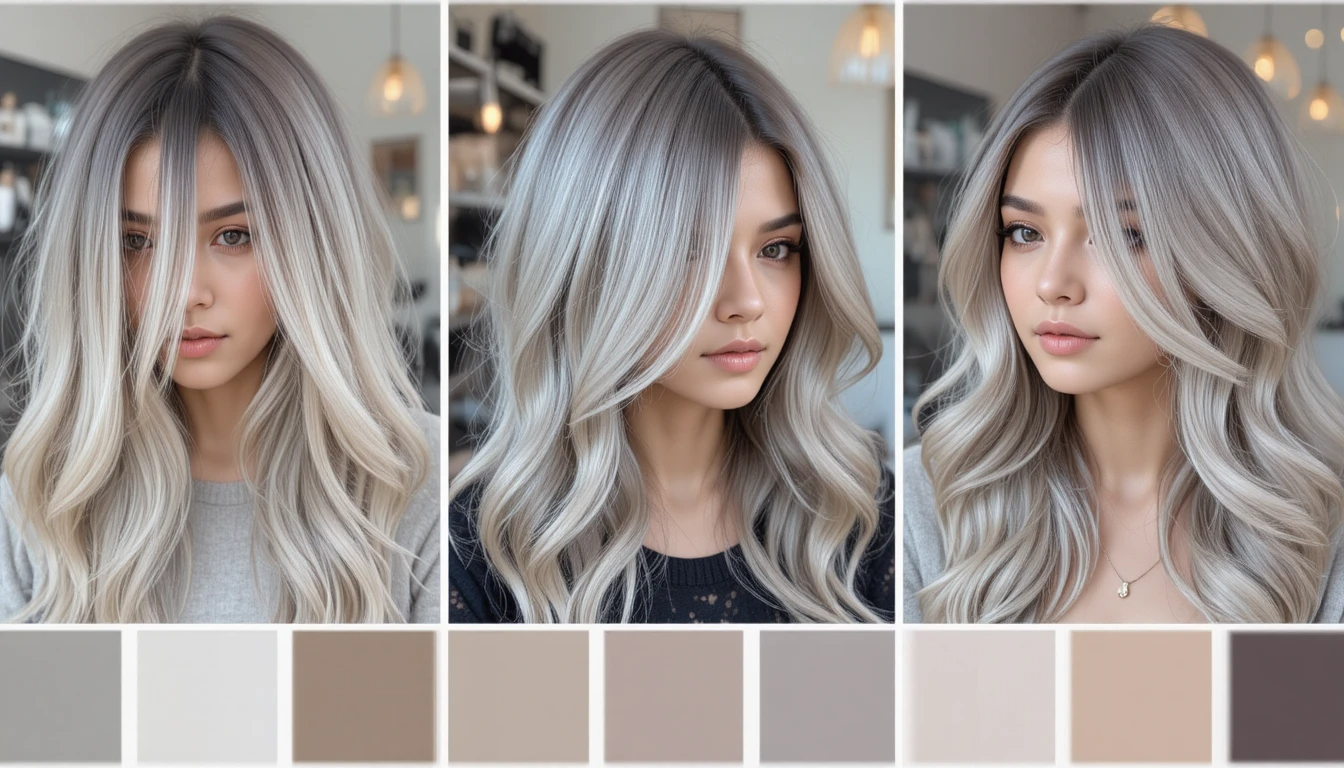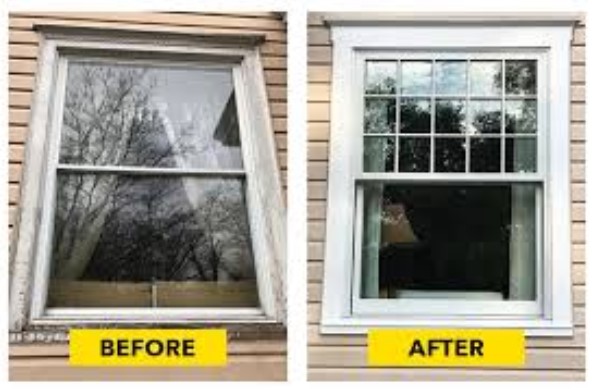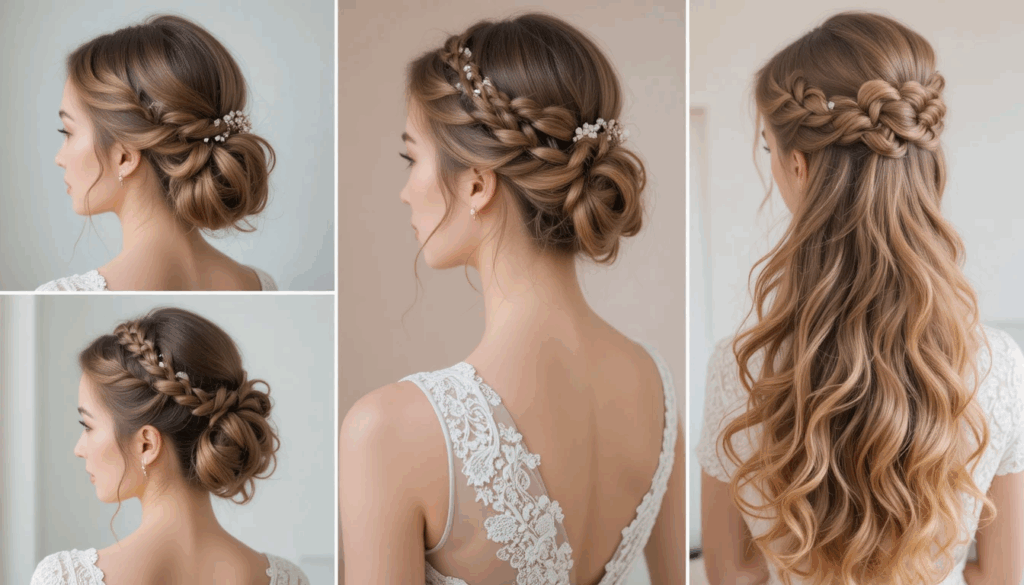Transition Blending Grey Hair With Highlights And Lowlights
As more people embrace their natural grey hair, the trend of blending grey with highlights and lowlights has gained popularity. This technique not only softens the appearance of grey but also adds Dimension and depth, creating a sophisticated look that is low-maintenance and stylish.
Transition blending grey hair with highlights and lowlights is the perfect middle ground. This subtle, artistic approach lets you combine your natural grays with your existing hair color to create a soft, dimensional, and effortlessly elegant look. In this comprehensive guide, we’ll explore everything you need to know about transitioning to grey hair using highlights and lowlights, from techniques to maintenance.
| Category | Details |
| Purpose of Grey Blending | To create a natural, seamless transition between dyed and grey hair using highlights and lowlights. |
| Ideal Candidates | Individuals with partial grey hair who want a softer, more natural grow-out without full coverage dye. |
| Techniques Used | Balayage, Foil Highlights, Babylights, Lowlights, Reverse Balayage, and Root Smudge. |
| Best Shades for Cool Tones | Silver, Ash Blonde, Platinum, Pearl, Icy Beige. |
| Best Shades for Warm Tones | Honey Blonde, Caramel, Golden Beige, Light Chestnut. |
| Hair Types Suited | Straight, wavy, or curly hair; adaptable for both fine and thick textures. |
| Time Required per Session | Approximately 2–4 hours, depending on hair length and density. |
| Average Cost (USD) | $200–$400 for a full blending session; $75–$150 for toner or gloss refresh. |
| Maintenance Frequency | Every 8–10 weeks for toning; every 4–6 months for full blending updates. |
| Home Care Tips | Use sulfate-free shampoo, purple or blue-toning shampoo weekly, and deep-conditioning masks. |
| Longevity of Results | 3–6 months before a major touch-up is needed, depending on hair growth and sun exposure. |
| Styling Compatibility | Works beautifully with curls, waves, and smooth blowouts — enhances shine and depth. |
| Main Benefits | Low maintenance, natural look, enhanced shine, softer root transition, age-positive aesthetic. |
Understanding Grey Hair and the Transition Process
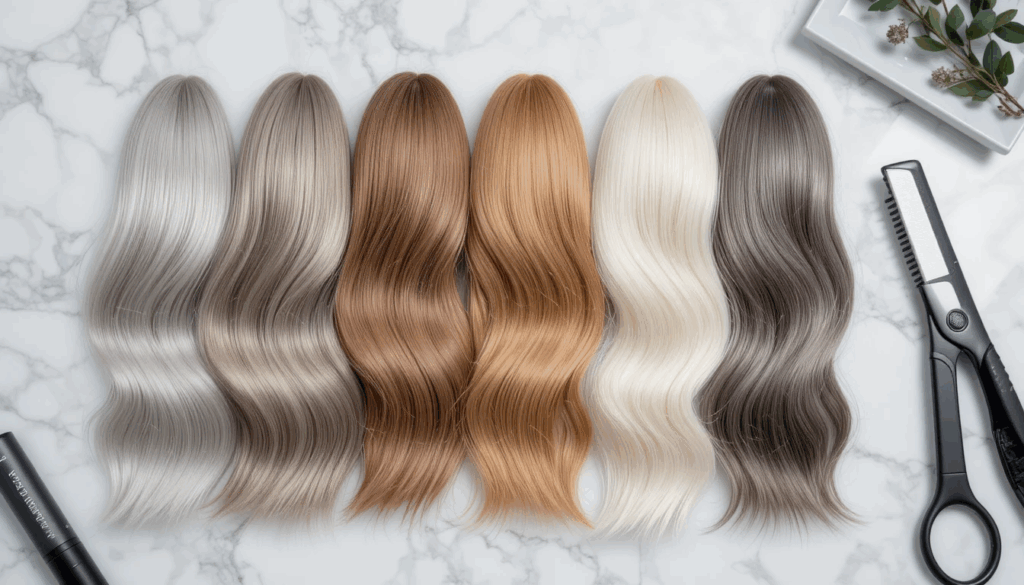
The Natural Transition
Grey hair can be a beautiful and distinguishing feature, symbolizing wisdom and maturity. However, the transition from colored hair to natural grey is often met with apprehension. Many individuals fear looking washed out or dull. Blending grey hair with highlights and lowlights can create a more gradual transition, allowing for a softer appearance.
Highlights vs. Lowlights
- Highlights: These are lighter strands of hair that create brightness and Dimension. They can help frame the face and add a youthful glow.
- Lowlights: In contrast, lowlights are darker strands that add depth and richness to the hair color. They can help reduce the stark contrast between grey and colored hair, making the transition smoother.
Benefits of Blending Grey Hair with Highlights and Lowlights

1. Softens the Appearance of Grey
By incorporating highlights and lowlights, the harshness of grey can be softened. This strategy creates a more natural look and reduces the visibility of regrowth.
2. Adds Dimension
Mixing different shades adds depth and Dimension to your hair, making it look fuller and more vibrant. This dimensionality enhances the overall aesthetic of grey hair.
3. Low-Maintenance
Once you achieve the desired blend, the maintenance becomes relatively low. As your hair grows, the highlights and lowlights will blend with the grey, requiring fewer touch-ups.
4. Customizable
The combination of highlights and lowlights can be tailored to suit individual preferences and skin tones, allowing for a personalized look that enhances your natural beauty.
Choosing the Right Shades
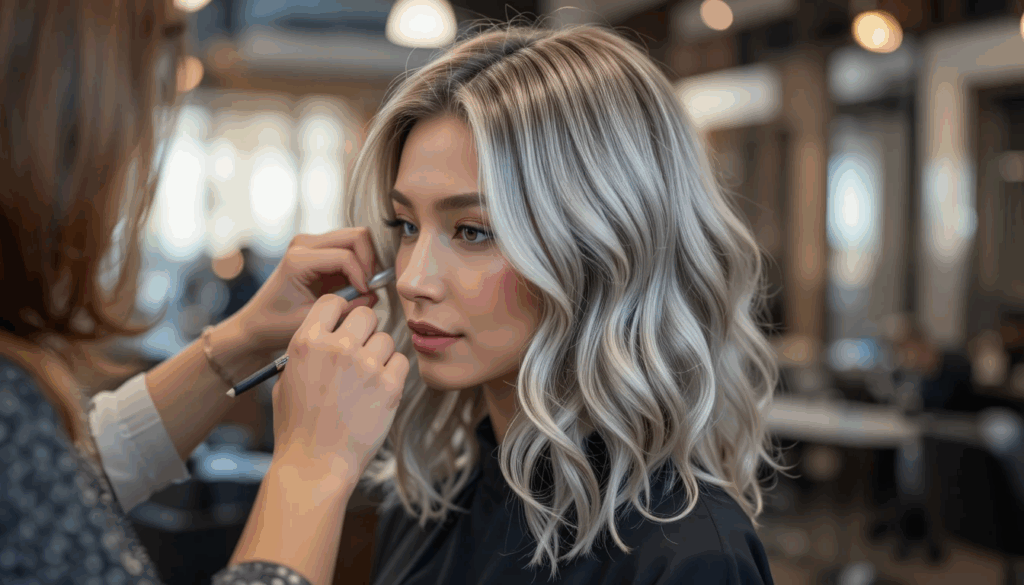
Skin Tone Consideration
When selecting highlights and lowlights, it’s essential to consider your skin tone:
- Warm Skin Tones: Opt for honey, caramel, or golden highlights combined with rich chocolate or auburn lowlights.
- Cool Skin Tones: Choose ash blonde or platinum highlights paired with cool brown or deep burgundy lowlights.
Grey Hair Level
The level of grey in your hair will also influence your choice of shades. Lighter greys may benefit from brighter highlights, while deeper lowlights can beautifully complement darker greys.
Techniques for Blending Grey Hair
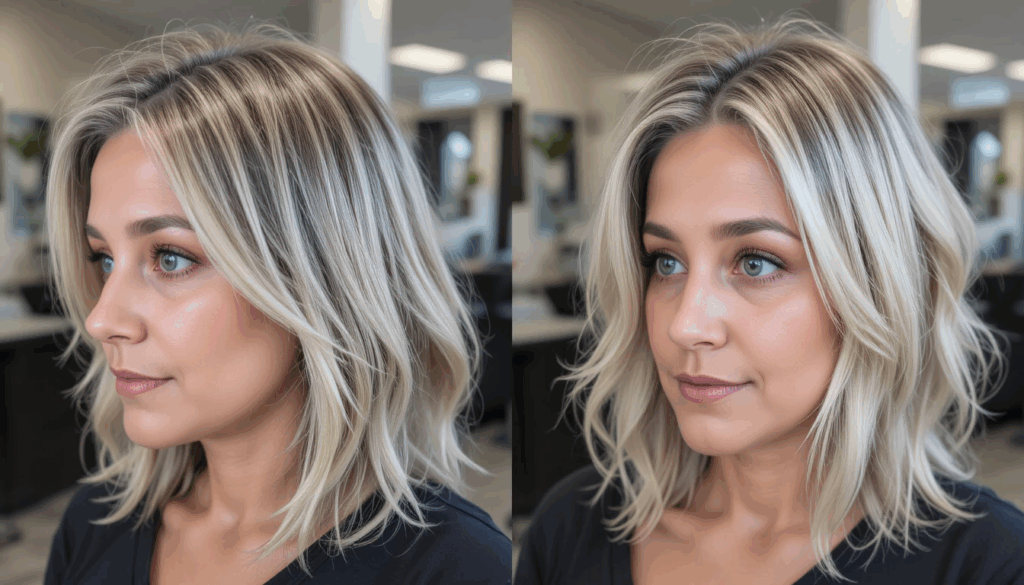
1. Balayage
Balayage is a freehand technique where colorists paint highlights onto the hair, creating a natural, sun-kissed effect. This method is excellent for blending grey hair as it allows for a soft transition without harsh lines.
2. Foil Highlights
Foil highlights involve wrapping sections of hair in foil to isolate them during the coloring process. This technique can create more pronounced highlights, which can be beneficial for those with a significant amount of grey.
3. Ombre
Ombre is a gradient technique where the color gradually transitions from a darker shade at the roots to a lighter shade at the ends. This method can be adapted to blend grey hair effectively, allowing for a striking yet soft look.
4. Root Smudge
A root smudge technique involves applying a darker color at the roots, blending it into the lighter highlights. This technique helps soften the regrowth line, making it less noticeable.
Maintenance Tips for Blended Grey Hair
1. Use Color-Safe Products
Invest in shampoos and conditioners designed for color-treated hair. These products help maintain the vibrancy of highlights and lowlights while keeping your grey hair healthy.
2. Regular Touch-Ups
Schedule regular appointments with your stylist to maintain the blend. Depending on your hair growth rate, touch-ups may be needed every 6-8 weeks.
3. Deep Conditioning Treatments
Incorporate deep conditioning treatments into your routine to keep your hair moisturized and healthy. Grey hair can be prone to dryness, so maintaining hydration is crucial.
4. Minimize Heat Styling
Limit the use of heat styling tools to prevent damage. When using heat, always apply a heat protectant to shield your hair from potential damage.
Recommended Techniques for Blending Grey Hair
| Technique | Description | Best For |
| Balayage | Freehand application for a natural look | Soft transitions |
| Foil Highlights | Isolating sections with foil for pronounced highlights | Significant grey coverage |
| Ombre | Gradient effect from dark to light | Bold, dramatic looks |
| Root Smudge | Blending darker roots with lighter highlights | Softening regrowth lines |
Finding the Right Stylist
Choosing the right stylist is crucial for achieving the perfect blend of grey hair with highlights and lowlights. Look for a colorist with experience in working with grey hair and blending techniques. Don’t hesitate to ask for consultations or to see their portfolio of previous work.
Questions to Ask Your Stylist
- What techniques do you recommend for my hair type and color?
- How often should I come in for touch-ups?
- Can you suggest products to maintain my color?
Embracing the Transition
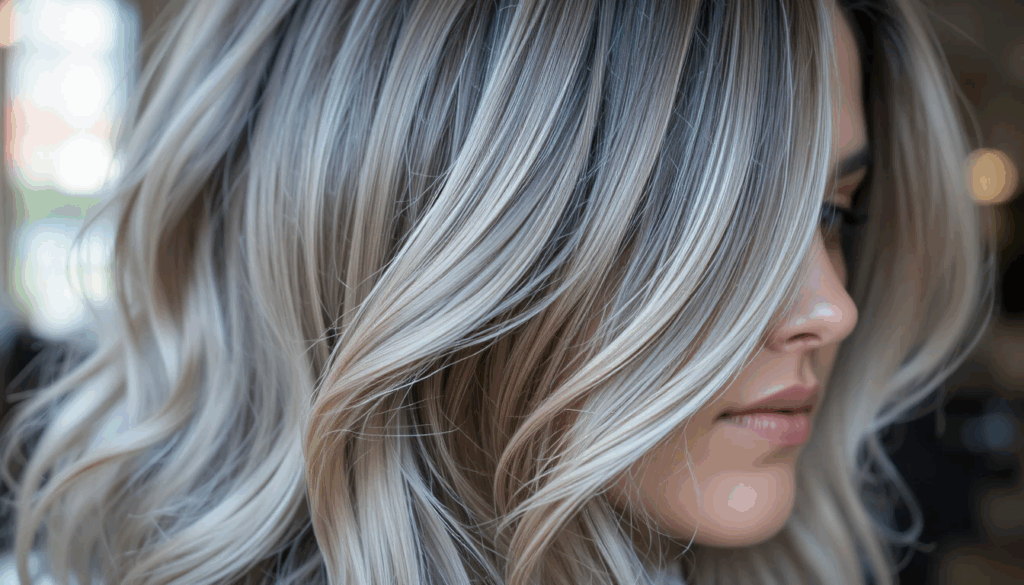
Transitioning to grey hair can be a beautiful journey. Embracing the process, with its highlights and lowlights, allows you to enjoy a soft, dimensional look while minimizing maintenance. As you blend your grey hair, remember to celebrate the uniqueness of your natural color and texture.
Conclusion
Transitioning to grey hair doesn’t have to be daunting. By incorporating highlights and lowlights, you can create a soft, dimensional look that enhances your natural beauty. With the proper technique, tones, and care routine, your transition can be both empowering and beautiful, a celebration of confidence and individuality.
With the right shades, techniques, and maintenance, you can enjoy a low-maintenance style that allows your grey hair to shine. Embrace the journey and discover the beauty in blending!
Want to know about Short Hairstyles Women Love: Trendy Cuts, Styling Tips, and Celebrity Inspiration for Every Face Shape Check out our Fashion category.
FAQs
Highlights are lighter strands of hair that add brightness, while lowlights are darker strands that provide depth and Dimension.
They soften the appearance of grey, reduce the stark contrast between grey and colored hair, and create a more natural, blended look.
Popular techniques include balayage, foil highlights, ombre, and root smudge, each offering unique results based on your desired look.
Touch-ups are typically recommended every 6-8 weeks, depending on your hair growth rate and the amount of grey.

